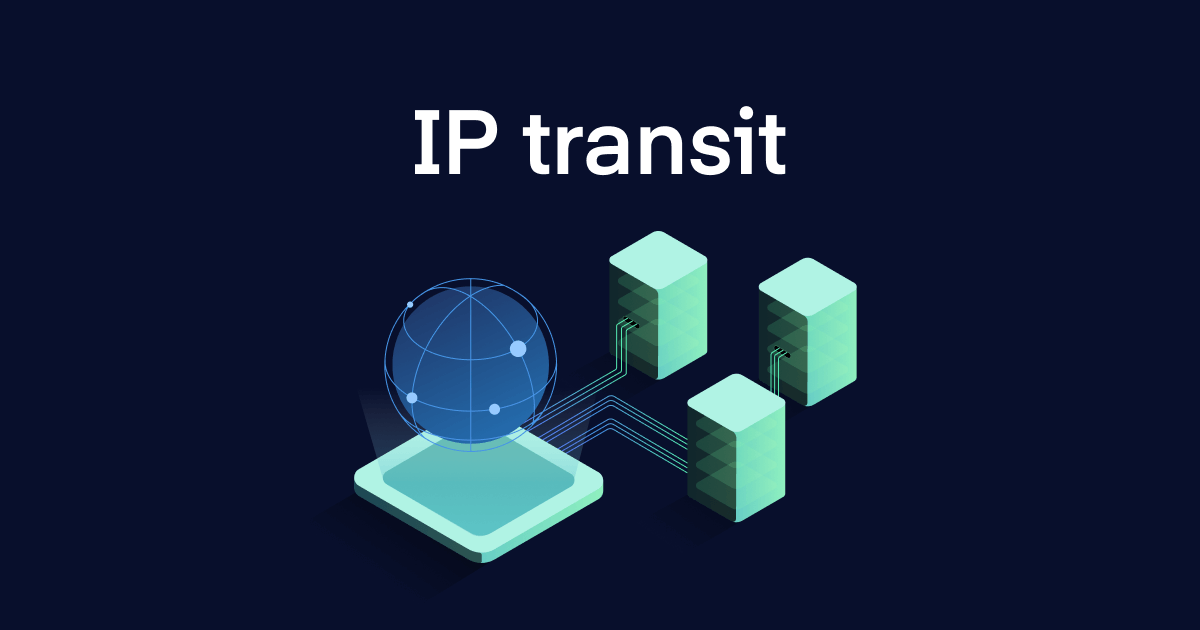Companies of all sizes depend on IP Transit to gain access to the digital world. IP transit is at the core of modern communications networks, from accessing cloud-based services to supplying platforms for ecommerce. In this article, we’ll examine the fundamentals of IP transit, the role of IP transit providers, the variety of services they offer, and how companies can navigate IP transit costs and pricing.

IP transit, also called internet transit, is the service of allowing network traffic to cross or “transit” through a network, allowing users to connect to internet. IP transit providers facilitate this connectivity by owning and operating the infrastructure needed for data transmission across networks. They play a crucial role in making sure that internet connectivity is secure and reliable for users and businesses.
There are numerous IP transit options that are available to companies. Certain providers provide basic transit services, providing access to the internet but with no extra features or adjustments. Some providers offer more sophisticated services like managed IP transit, which comes with additional support, monitoring and security options. The kind of service you choose will depend on the needs and demands of your business.
One of the most important factors to consider for companies when choosing an IP transit provider is pricing. Prices for IP transit may be influenced by factors such as bandwidth requirements, geographic location and service-level contracts. Understanding pricing structures, cost models and levels of service provided by various providers will assist businesses in making informed choices.
In addition to pricing, businesses should also consider the reliability and performance of the IP transit provider. Carrier grade networks that have backbone connectivity of 100G and 400G are able to provide the reliability in scalability, reliability and capacity to support mission-critical services and applications. Automating all processes from beginning to finish improves effectiveness and delivers seamless user experience.
IP-Access is a flexible and fully customizable solution for companies that are looking to streamline the network’s connectivity. This connectivity solution is ideal for businesses with older infrastructure or particular requirements. With features such as IPv4/31 and IPv6/127 transfer networks in default, companies can modify their connectivity to meet their specific needs without the hassle of BGP sessions.
When it comes to internet access, IP-Access also comes with basic DDoS protection against attacks that are volumetric, offering an added layer of security for both networks and businesses. This can protect against the possibility of losing revenue and downtime due to cyber threats.
Inter.link Portal provides a convenient, efficient and cost-effective way to access IP services to all companies. Within a matter of minutes, companies can setup IP transit by choosing their preferred locations as well as bandwidth requirements. This process is efficient and saves time and money, allowing businesses to focus on the core tasks.
In conclusion, IP transit plays a vital role in enabling the internet of today and enabling companies to connect and communicate with others around the globe. By understanding the fundamentals of IP transit, the role of IP transit providers, the range of services they offer and the best way to manage pricing and costs, businesses are able to make informed decisions and be sure that they have the connectivity they require to thrive in today’s digital environment. IP Transit is the core of modern communications networks, whether for accessing cloud-based services, serving as the powerhouse behind platforms like ecommerce or connecting remote offices.